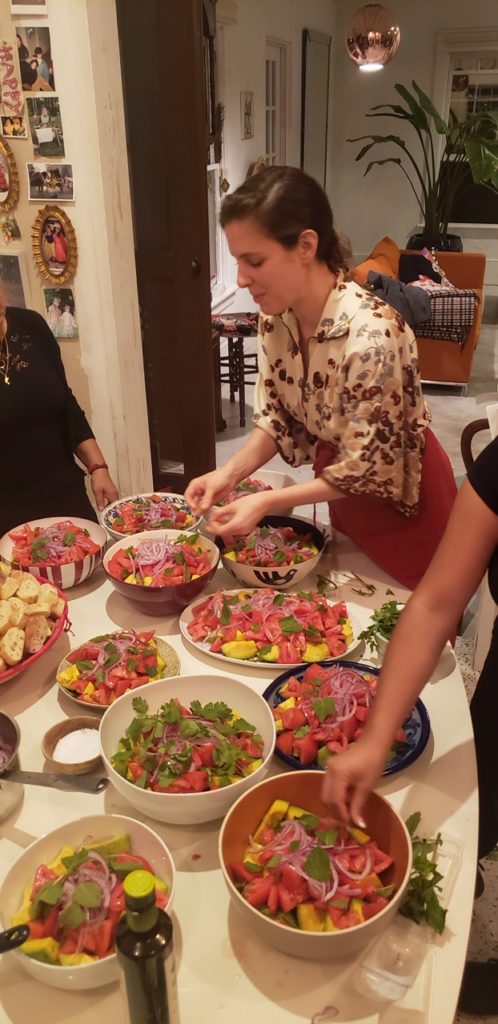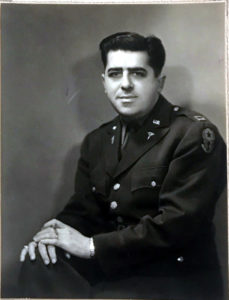Two Men Lose Their Wives and One Gets His Back
GERI, LARRY AND GWEN
Larry (not his real name) and I were mutually – and instantly -attracted to each other the first time we met, at a train station in New Jersey in 2002. Responding to an ad I placed in The New York Times personals section, he called me one morning as I was leaving my Manhattan apartment for a meeting in Jersey, where he lived. We agreed I’d get off the train on my way back to New York. We’d have dinner, and then he’d drive me home.
 I learned over dinner that Larry’s beloved wife of over 40 years had died of cancer a few years before. Ten years my senior, he had three grown children, a few grandchildren, and owned a successful business that stored legal records. We had an animated and comfortable conversation. He also looked so much like a well-known – and sexy – actor that it was downright eerie. And exciting!
I learned over dinner that Larry’s beloved wife of over 40 years had died of cancer a few years before. Ten years my senior, he had three grown children, a few grandchildren, and owned a successful business that stored legal records. We had an animated and comfortable conversation. He also looked so much like a well-known – and sexy – actor that it was downright eerie. And exciting!
So began our hot and heavy relationship. And then I learned about Gwen, the best friend of Larry’s deceased wife, who was divorced. Gwen and Larry had been “dating” on and off since his wife died. He claimed to be ambivalent about her, but she seemed to be “hovering” around us most of the time. Not literally, of course.
Larry took me to his home for dinner and a sleepover about four months after we met. Things were getting serious. During dinner, I casually asked: “Do you love Gwen?” He mumbled, “No.”
I called my sister from the train the next morning, during my trip back to Manhattan. It was a dreary, rainy day, but I was happy. “I think Larry’s the one,” I told her.
The week was intensely busy at work. I didn’t hear a peep from Larry, which increased my anxiety with each passing day. I finally called him on Friday. “Why haven’t you called?” I asked.
 “When you asked if I loved Gwen, I realized I need time and space to decide,” Larry answered. “We should take a break for a few weeks.” It was inconsiderate of him not to have called the whole week, I said. I was distraught as I headed to a meeting for a big summit I was planning.
“When you asked if I loved Gwen, I realized I need time and space to decide,” Larry answered. “We should take a break for a few weeks.” It was inconsiderate of him not to have called the whole week, I said. I was distraught as I headed to a meeting for a big summit I was planning.
Larry and I spoke on the phone frequently, and I started dating another man who I liked, but not nearly as much as Larry. I told Larry about him.
After a few weeks, Larry asked if he could take me to the theatre and dinner. We had a wonderful evening, and the next morning during breakfast, Larry told me he had decided he wanted to be with me. I turned him down. “I think I’ll continue seeing the man I met when you were taking a break,” I told him. I wasn’t convinced Gwen was completely out of the picture.
And that was that. I spoke to Larry a number of times during the next six months, and he kept asking if I was still seeing the other man. I told him I was.
Larry didn’t wind up with Gwen. He and I lost touch.
GERI, CHARLIE, AND BELINDA
 After a former close friend died four years ago, her husband Charlie told me she had thought he should become involved with a close friend of theirs after she was gone. They had known Belinda for decades. The dying woman knew Charlie would have a hard time being alone and she felt Belinda would take care of him.
After a former close friend died four years ago, her husband Charlie told me she had thought he should become involved with a close friend of theirs after she was gone. They had known Belinda for decades. The dying woman knew Charlie would have a hard time being alone and she felt Belinda would take care of him.
During a lunch date, Charlie said he wasn’t entirely sure Belinda was right for him.
They’re living together now, and Charlie recently sent me an email about how happy he is. He intimated, however, that he and his lady love have different values about crucial issues that affect our lives. (BTW, I’m generally dubious about anyone who feels the need to tell you how “happy” and in love they are.)
I met Belinda once. She physically resembles my former friend, and from our brief conversation, I observed other superficial similarities.
Unlike Larry, Charlie didn’t do much soul searching about his new relationship. He’s not as emotionally secure or as physically fit as Larry was, so perhaps he wasn’t up to playing the field in his seventies. Although I fail to see how he would want to be intimately involved with someone with opposing fundamental values, I’m not surprised that he is.
At one point I actually thought I could become involved with Charlie but realized how wrong I’d be for him, as I would have been for Larry. I loved many things about both of them, but would have found it terribly difficult to overlook others.
Thank goodness for a woman’s best friends. They can make you see things more clearly.
GERI AND DOUGLAS
 Now I’m with Douglas, the father of my two children to whom I was married for 30 years. We share a great deal of history, and we’re best friends. We may not be lovers, but we love one another. We’ve also grown to accept each other’s many foibles, more or less. Before Covid crashed onto the scene, Douglas would come to Brooklyn from Manhattan to spend three nights a week at my house.
Now I’m with Douglas, the father of my two children to whom I was married for 30 years. We share a great deal of history, and we’re best friends. We may not be lovers, but we love one another. We’ve also grown to accept each other’s many foibles, more or less. Before Covid crashed onto the scene, Douglas would come to Brooklyn from Manhattan to spend three nights a week at my house.
We’ve been together constantly since the beginning of March, sharing three meals a day, lots of laughs, conversations, and perhaps a handful of arguments. We met when we were juniors at New York University, over half a century ago.
“Life can only be understood backwards; but it must be lived forwards.”― Søren Kierkegaard












 You’re in your fifties or sixties, and after years of satisfying sex with your partner, it’s the last thing you want to do nowadays. Pleasure has turned into pain, and sometimes it’s excruciating. You think this unfortunate change is part of aging, and can’t be treated, so you don’t talk about it with anyone. Not your husband, your doctor or your best friend. Besides, you’d never feel comfortable discussing intimate matters.
You’re in your fifties or sixties, and after years of satisfying sex with your partner, it’s the last thing you want to do nowadays. Pleasure has turned into pain, and sometimes it’s excruciating. You think this unfortunate change is part of aging, and can’t be treated, so you don’t talk about it with anyone. Not your husband, your doctor or your best friend. Besides, you’d never feel comfortable discussing intimate matters.  Best of all, you’ll understand why it absolutely pays to speak up, and you’ll have the invaluable knowledge you need to talk to your own doctor and explore the treatment that’s right for you.
Best of all, you’ll understand why it absolutely pays to speak up, and you’ll have the invaluable knowledge you need to talk to your own doctor and explore the treatment that’s right for you.  We all enjoy sharing our successes with those we love, and sometimes with those we may not even like (come on, be honest, you do!) But, I’m always astounded when people blatantly – and prolongedly – brag about themselves and their families. What’s their goal? Surely, their close friends know what’s up in their lives. And why do they have a need to impress their acquaintances? Are they actually insecure about themselves, so sharing their accomplishments makes them feel more confident?
We all enjoy sharing our successes with those we love, and sometimes with those we may not even like (come on, be honest, you do!) But, I’m always astounded when people blatantly – and prolongedly – brag about themselves and their families. What’s their goal? Surely, their close friends know what’s up in their lives. And why do they have a need to impress their acquaintances? Are they actually insecure about themselves, so sharing their accomplishments makes them feel more confident?  He is now living in a “14-room apartment, but with one less maid’s room” than in the apartment where he used to live.
He is now living in a “14-room apartment, but with one less maid’s room” than in the apartment where he used to live. (ed note: notice the wife is smart AND blonde).
(ed note: notice the wife is smart AND blonde). Do you know a woman (or four) who talks incessantly about herself? You could be on a call with her, put down the phone and walk away for five minutes, and she wouldn’t know you were gone!
Do you know a woman (or four) who talks incessantly about herself? You could be on a call with her, put down the phone and walk away for five minutes, and she wouldn’t know you were gone! I was equally tiresome in my forties, constantly bemoaning my unhealthy relationship with a man who took over so much real estate in my brain, it’s a wonder any other thoughts could move in. Maybe this woman needs more time to learn what I eventually learned: Relationships built on delusions are destined to collapse. (Think about Glenn Close in Fatal Attraction.)
I was equally tiresome in my forties, constantly bemoaning my unhealthy relationship with a man who took over so much real estate in my brain, it’s a wonder any other thoughts could move in. Maybe this woman needs more time to learn what I eventually learned: Relationships built on delusions are destined to collapse. (Think about Glenn Close in Fatal Attraction.) 
